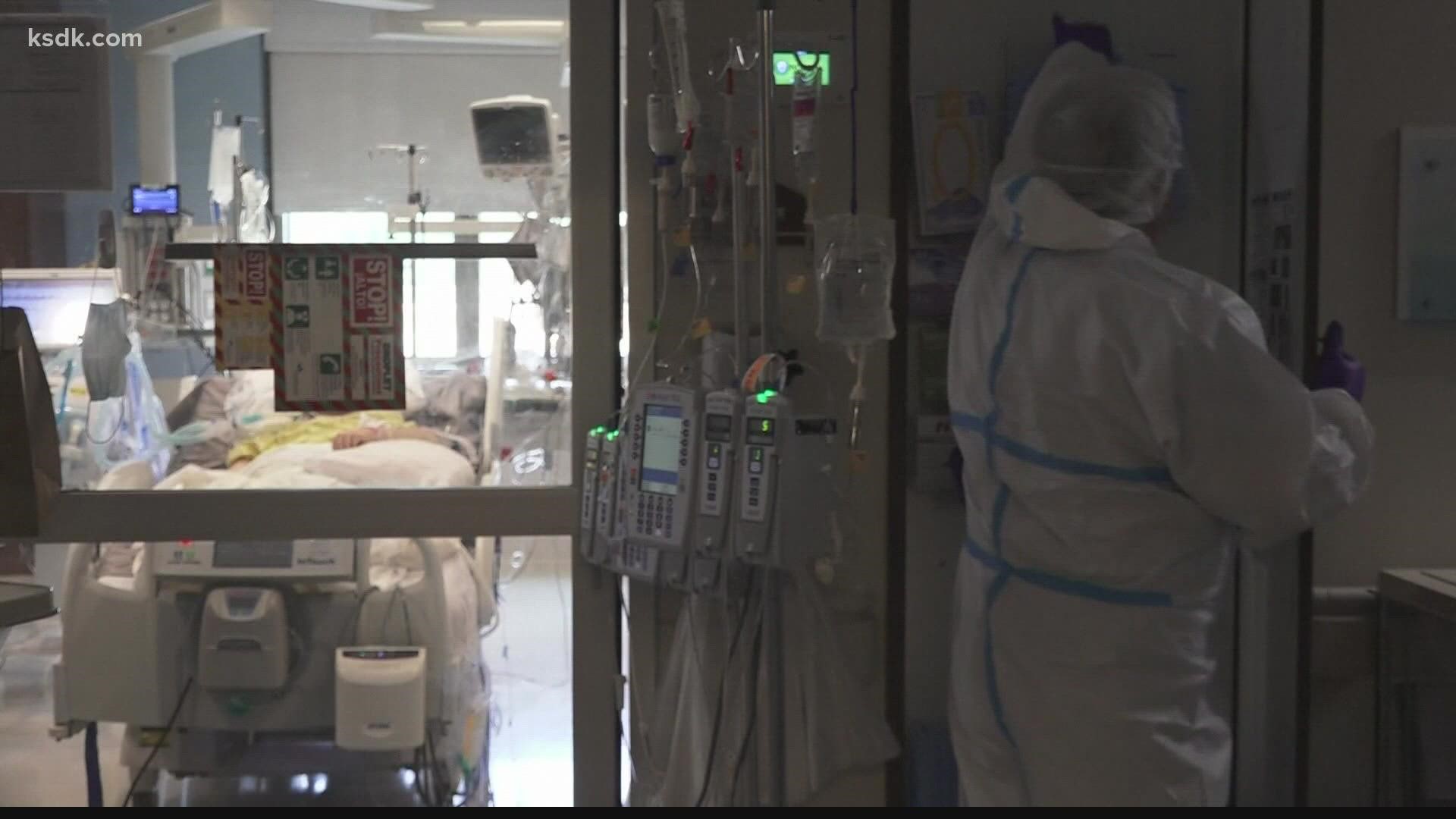ST. LOUIS — Despite a surge in COVID cases and hospitalizations, Missouri Gov. Mike Parson said there's no longer a need for a state of emergency in the Show-Me State.
It may be a new year, but BJC Healthcare Chief Clinical Officer Dr. Clay Dunagan said he’s seeing the same problems from the pandemic.
“We’re hitting case numbers that we’ve never seen before,” said Dr. Clay Dunagan. “Right now, we’re about to surpass our peak in terms of the number of admissions and the number of people we have in hospital for COVID.”
When Dr. Dunagan heard that Parson allowed the COVID-19 Emergency Order to expire at the end of 2021 he almost couldn’t believe it.
“I don’t know if the Governor is looking at different data than we are, but it’s hard to see this public health crisis as resolved,” said Dr. Dunagan. “I know we’re all anxious to get back to normal, but we’re operating on anything but a normal footing inside the health system.”
The COVID-19 emergency orders allowed hospitals to bridge staffing gaps by shortening the onboarding time, turning hospital rooms into intensive care units, and expanding capacity to operate with more beds than they’re legally licensed.
“Our trajectory is one that is really going to put some stress on us to take care of people,” said Dr. Dunagan.
Dr. Dunagan said the staff inside of BJC will work to minimize any impacts inside the hospital, but there will undoubtedly be a difference in rural health care settings that depend on telehealth.
“Patients are going to have a lot of trouble moving from one location to another and having telehealth capacity lets us render care at a distance in a way that we really can’t do normally,” said Dr. Dunagan. “Waivers were very important in helping accelerate that.”
Gov. Parson is allowing health care systems to have some flexibility as they return to pre-emergency order operations.
“It wasn’t that we had to stop everything on midnight at New Year's Eve,” said Dr. Dunagan.
However, Dr. Dunagan said it’s time for legislators to step up and fill the gaps.
“We want them to take a careful look at the things that the waivers enabled us to do that have really been very beneficial for the health care system and take action on those things,” said Dr. Dunagan. “I think most of them aren’t really that controversial, but they reflect the shift in the health care industry over time.”
Twenty states across the country, including Illinois, still have emergency orders in place related to COVID-19.

